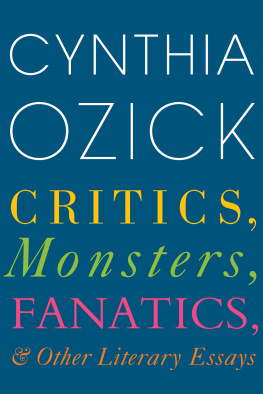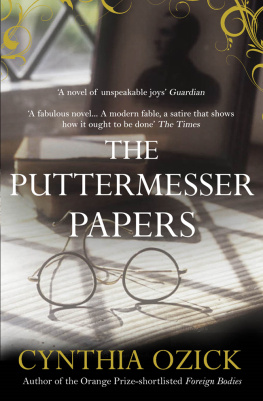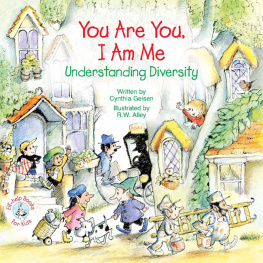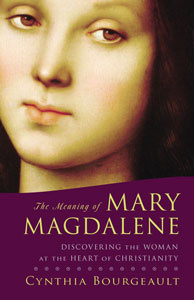Cynthia Ozick - Foreign Bodies
Here you can read online Cynthia Ozick - Foreign Bodies full text of the book (entire story) in english for free. Download pdf and epub, get meaning, cover and reviews about this ebook. year: 2016, publisher: Atlantic Books, genre: Detective and thriller. Description of the work, (preface) as well as reviews are available. Best literature library LitArk.com created for fans of good reading and offers a wide selection of genres:
Romance novel
Science fiction
Adventure
Detective
Science
History
Home and family
Prose
Art
Politics
Computer
Non-fiction
Religion
Business
Children
Humor
Choose a favorite category and find really read worthwhile books. Enjoy immersion in the world of imagination, feel the emotions of the characters or learn something new for yourself, make an fascinating discovery.

- Book:Foreign Bodies
- Author:
- Publisher:Atlantic Books
- Genre:
- Year:2016
- Rating:4 / 5
- Favourites:Add to favourites
- Your mark:
- 80
- 1
- 2
- 3
- 4
- 5
Foreign Bodies: summary, description and annotation
We offer to read an annotation, description, summary or preface (depends on what the author of the book "Foreign Bodies" wrote himself). If you haven't found the necessary information about the book — write in the comments, we will try to find it.
Foreign Bodies — read online for free the complete book (whole text) full work
Below is the text of the book, divided by pages. System saving the place of the last page read, allows you to conveniently read the book "Foreign Bodies" online for free, without having to search again every time where you left off. Put a bookmark, and you can go to the page where you finished reading at any time.
Font size:
Interval:
Bookmark:
FOREIGN BODIES
Fiction by Cynthia Ozick:
Dictation
Heir to the Glimmering World
The Puttermesser Papers
The Shawl
The Messiah of Stockholm
The Cannibal Galaxy
Levitation: Five Fictions
Bloodshed and Three Novellas
The Pagan Rabbi and Other Stories
Trust
CYNTHIA OZICK

First published in the United States in 2010 by Houghton Mifflin Harcourt Publishing Company, New York.
First published in Great Britain in 2011 by Atlantic Books, an imprint of Atlantic Books Ltd.
Copyright Cynthia Ozick, 2010
The moral right of Cynthia Ozick to be identified as the author of this work has been asserted by her in accordance with the Copyright, Designs and Patents Act of 1988.
All rights reserved. No part of this publication may be reproduced, stored in a retrieval system or transmitted in any form or by any means, electronic, mechanical, photocopying, recording or otherwise, without the prior permission of both the copyright owner and the above publisher of this book.
This novel is entirely a work of fiction. The names, characters and incidents portrayed in it are the work of the authors imagination and not to be construed as real. Any resemblance to actual persons, living or dead, events or localities, is entirely coincidental.
10 9 8 7 6 5 4 3 2 1
A CIP catalogue record for this book is available from the British Library.
Hardback ISBN: 978 1 84887 735 1
Trade Paperback ISBN: 978 0 85789 362 8
eBook ISBN: 978 0 85789 583 7
Printed in Great Britain
Atlantic Books
An imprint of Atlantic Books Ltd.
Ormond House
2627 Boswell Street
London WC1N 3JZ
www.atlantic-books.co.uk
Table of Contents
But there are two quite distinct thingsgiven the wonderful place hes inthat may have happened to him. One is that he may have got brutalized. The other is that he may have got refined.
Henry James, The Ambassadors
July 23, 1952
Dear Marvin,
Well, Im back. London was all right, Paris was terrible, and I never made it down to Rome. They say its the hottest summer theyve had since before the war. And except for the weather, Im afraid theres not much else to report. The address you gave me Julian left there about a week ago. It seems I just missed him by a few days. You wouldnt have approved, a rooming house in a rundown neighborhood way out toward the edge of the city. I did the best I could to track him down tried all the places you said he might be working at. His landlady when I inquired turned out to be a pure blank. All she had to offer was an inkling of a girlfriend. He took everything with him, apparently not much.
Im returning your check. From the looks of where your son was living, he could certainly have used the $500. Sorry I couldnt help more. I hope you and (especially) Margaret are well.
Yours,
Beatrice
I N THE EARLY FIFTIES of the last century, a ferocious heat wave assaulted Europe. It choked its way north from Sicily, where it scorched half the island to brownish rust, up toward Malm at the lowest tip of Sweden; but it burned most savagely over the city of Paris. Hot steam hissed from the wet rings left by wine glasses on the steel tables of outdoor cafs. In the sky just overhead, a blast furnace exhaled searing gusts, or else a fiery geyser, loosed from the suns core, hurled down boiling lava on roofs and pavements. People made this comparison and that sometimes it was the furnace, sometimes the geyser, and now and then the terrible heat was said to be a general malignancy, a remnant of the recent war, as if the continent itself had been turned into a region of hell.
At that time there were foreigners all over Paris, suffering together with the native population, wiping the trickling sweat from their collarbones, complaining equally of feeling suffocated; but otherwise they had nothing in common with the Parisians or, for that matter, with one another. These strangers fell into two parties one vigorous, ambitious, cheerful, and given to drink, the other pale, quarrelsome, forlorn: a squad of volatile maundering ghosts.
The first was looking to summon the past: it was a kind of self-intoxicated theater. They were mostly young Americans in their twenties and thirties who called themselves expatriates, though they were little more than literary tourists on a long visit, besotted with legends of Hemingway and Gertrude Stein. They gathered in the cafs to gossip and slander and savor the old tales of the lost generation, and to scorn what they had left behind. They rotated lovers of either sex and played at existentialism and founded avant-garde journals in which they published one another and bragged of having sighted Sartre at the Deux Magots, and were proudly, relentlessly, unremittingly conscious of their youth. Unlike that earlier band of expatriates, who had grown up and gone home, these intended to stay young in Paris forever. They made up a little city of shining white foreheads; but their teeth were stained from too much whiskey and wine, and too many powerful French cigarettes. They spoke only American. Their French was bad.
The other foreign contingent the ghosts were polyglot. They chattered in dozens of languages. Out of their mouths spilled all the cadences of Europe. Unlike the Americans, they shunned the past, and were free of any taint of nostalgia or folklore or idyllic renewal. They were Europeans whom Europe had set upon; they wore Europes tattoo. You could not say of them, as you surely would of the Americans, that they were a postwar wave. They were not postwar. Though they had washed up in Paris, the war was still in them. They were the displaced, the temporary and the temporizing. Paris was a way station; they were in Paris only to depart from Paris, as soon as they knew who would have them. Paris was a city to wait in. It was a city to get away from.
Beatrice Nightingale belonged to neither party. She had been Miss Nightingale in public for twenty-four years, even during her marriage and certainly after the divorce, and had sometimes begun to think of herself by that name, if only to avoid the accusatory inward buzz of Bea. To Bea or not to Bea: she was one of that ludicrously recognizable breed of middle-aged teachers who save up for a longed-for summer vacation in the more romantic capitals of Europe. That these capitals, after the war, were scarred and exhausted, drained of all their well-advertised enchantments, did not escape her. She was resilient, intelligent, not inexperienced (marriage itself had taught her a thing or two). She was, after all, forty-eight years old, graying only a little, and tough with her students, high school boys sporting duck-tail haircuts who laughed at Wordsworth and ridiculed Keats: when they came to Ode to a Nightingale they went out of their way to hoot and leer but she knew how to tame them. She was good at her job and not ashamed of it. And after two decades at it, she was not yet burned out.
She had signed up for London, Paris, and Rome, but gave up on Rome (even though it was included in the agents package deal) when she read, in her noisy hot hotel room off Piccadilly, of the dangerous temperatures in the south. London had been nearly bearable, if you kept to the shade, but Paris was hideous, and Rome was bound to be an inferno. That ludicrously recognizable breed these were her mocking words to herself (traveling alone, she had no one else to say them to), though likely parroted from some jaunty guidebook, the kind that makes light of its own constituents. A more conscientious guidebook, the one sequestered at the bottom of her capacious bag passport, notepad, camera, tissues, aspirin, and so on was not jaunty. It was punishingly painstaking, and if you were obedient to its almost sacerdotal cartography, you would come away exalted by pictures and sculptures and historic public squares redolent of ancient beheadings.
Next pageFont size:
Interval:
Bookmark:
Similar books «Foreign Bodies»
Look at similar books to Foreign Bodies. We have selected literature similar in name and meaning in the hope of providing readers with more options to find new, interesting, not yet read works.
Discussion, reviews of the book Foreign Bodies and just readers' own opinions. Leave your comments, write what you think about the work, its meaning or the main characters. Specify what exactly you liked and what you didn't like, and why you think so.








